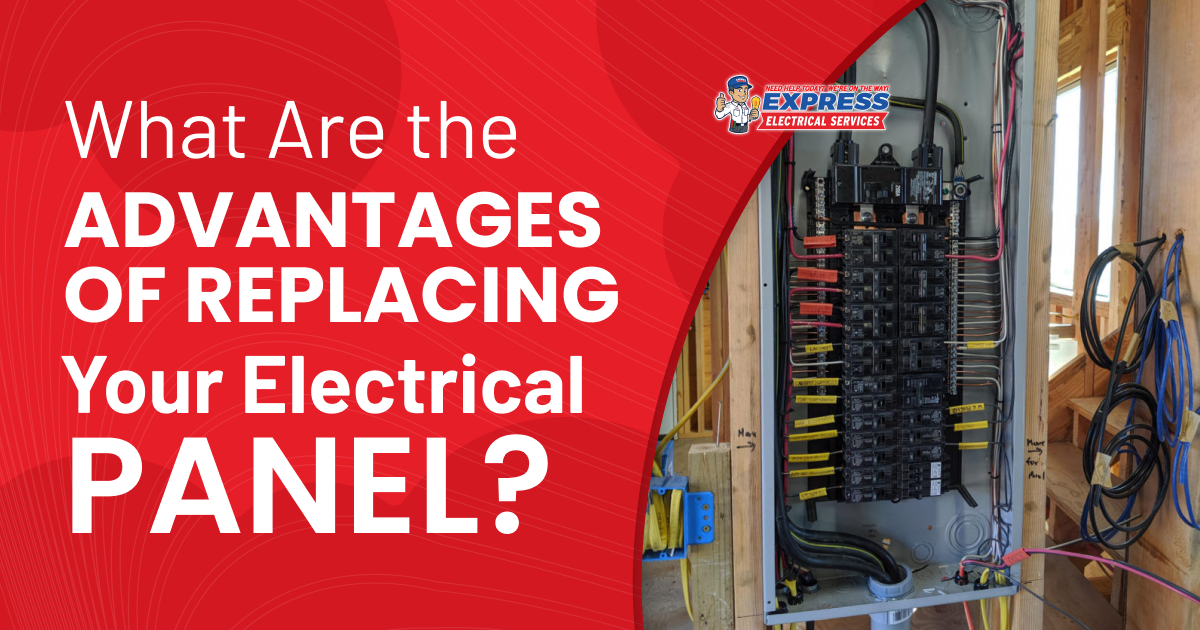5 Benefits of Upgrading to a 200-Amp Electrical Panel

Updating your old electrical panel to a 200-amp panel can have many benefits. You may not see your service panel often, but it’s a crucial part of your home. If it develops any issues or is overloaded, serious problems can occur. Also, older panels don’t meet the electrical needs of most modern households. Learn five reasons to upgrade your electrical panel and some signs you should replace it ASAP.
Why You Should Upgrade Your Electrical Panel
1. Improved Electrical Safety
A 200-amp panel can handle a larger electrical load than, for example, a 100-amp panel or a 60-amp panel. If your electrical panel is overloaded, you may deal with frequent power outages. And if wiring and other components overheat, melted insulation, arcing, short circuits, and surges can lead to electrical fires. A bigger electrical panel allows you to safely run all of your appliances.
2. Fewer Power-Related Issues
Installing a newer, higher-capacity panel eliminates the risk of an electrical overload. You also won’t have to deal with tripping circuit breakers, flickering lights, power fluctuations, or damage to appliances. The flow of power will be more consistent from day to day. A service panel upgrade also allows you peace of mind because you won’t have to think twice about plugging in an extra device or turning a light or TV on.
3. Higher-Power Appliances and Devices Can Be Used
Upgrading to a 200-amp panel essentially future-proofs your home. It provides enough capacity to avoid overloading circuits, as no circuit should be loaded to more than 80% of capacity. If you choose to update your refrigerator, washer/dryer, or air conditioner (or install a bigger tub or jacuzzi), your electrical system will support it. Upgrading a home office, building a home theater, or investing in smart home systems shouldn’t be an issue either.
4. You Can Add More Circuits
A higher-capacity panel has more space to add circuit breakers. Having 200 amps of capacity can’t hurt if you only need 100-amp service. But you can set up reserve power if you want to add a window air conditioner, water heater, or refrigerator or decorate your home with holiday lights. Also, if you’re only using 130 or 140 amps, the extra load won’t cause any damage.
5. A 200-Amp Panel Can Lower Your Energy Bills
Replacing an electrical panel isn’t cheap. But it may save you money over time. A 200-amp electrical panel is more energy efficient and allows you to use higher-power devices more efficiently. You can also invest in energy-saving, eco-friendly upgrades such as electric vehicle chargers.
Should I Replace My Electrical Panel Now?
An electrical panel can last up to 40 years. But the power demand of modern homes is much different than it was several decades ago. If you have an older home that hasn’t had a panel upgrade or electrical remodel, chances are it has insufficient power capacity. However, there are other reasons to tell your service panel should be replaced. These include:
- Your home still has a fuse box and fuses often blow and need to be replaced.
- Circuit breakers trip often, which often means there’s an electrical fault or the load is exceeding capacity.
- The panel feels warm to the touch, has burn marks, or a burning odor is coming from it.
- Lights often flicker or dim due to a lack of power or frequent surges.
- Appliances won’t run at full power or their power level seems to fluctuate in intensity.
- Outlets make buzzing, clicking, or humming noises or emit smoke, which can mean there’s a wiring or electrical panel issue.
Call Express Electrical Services to Upgrade to a 200-amp Panel
Our licensed, trained, and knowledgeable electricians can assess the needs of your home and provide an electrical panel upgrade. We’ve been serving Southern California since 1982. Whether it’s time to replace your service panel, re-wire your home, install GFCI outlets, or install smoke/carbon monoxide detectors or whole-home surge protection, you can count on us for prompt, high-quality service. Call (323) 204-4132 to request an appointment.

Leave A Comment